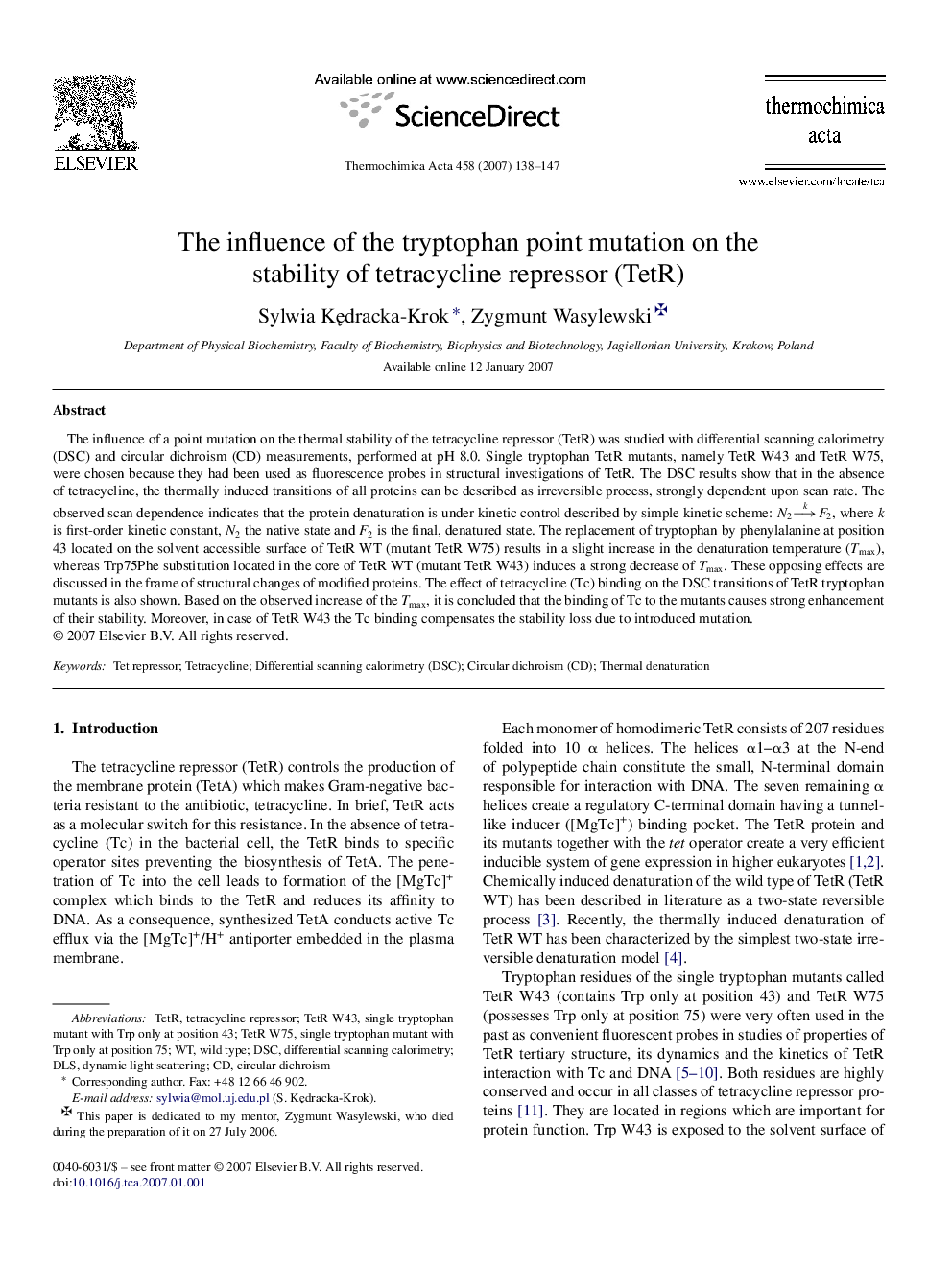| Article ID | Journal | Published Year | Pages | File Type |
|---|---|---|---|---|
| 675657 | Thermochimica Acta | 2007 | 10 Pages |
The influence of a point mutation on the thermal stability of the tetracycline repressor (TetR) was studied with differential scanning calorimetry (DSC) and circular dichroism (CD) measurements, performed at pH 8.0. Single tryptophan TetR mutants, namely TetR W43 and TetR W75, were chosen because they had been used as fluorescence probes in structural investigations of TetR. The DSC results show that in the absence of tetracycline, the thermally induced transitions of all proteins can be described as irreversible process, strongly dependent upon scan rate. The observed scan dependence indicates that the protein denaturation is under kinetic control described by simple kinetic scheme: N2⟶kF2, where k is first-order kinetic constant, N2 the native state and F2 is the final, denatured state. The replacement of tryptophan by phenylalanine at position 43 located on the solvent accessible surface of TetR WT (mutant TetR W75) results in a slight increase in the denaturation temperature (Tmax), whereas Trp75Phe substitution located in the core of TetR WT (mutant TetR W43) induces a strong decrease of Tmax. These opposing effects are discussed in the frame of structural changes of modified proteins. The effect of tetracycline (Tc) binding on the DSC transitions of TetR tryptophan mutants is also shown. Based on the observed increase of the Tmax, it is concluded that the binding of Tc to the mutants causes strong enhancement of their stability. Moreover, in case of TetR W43 the Tc binding compensates the stability loss due to introduced mutation.
